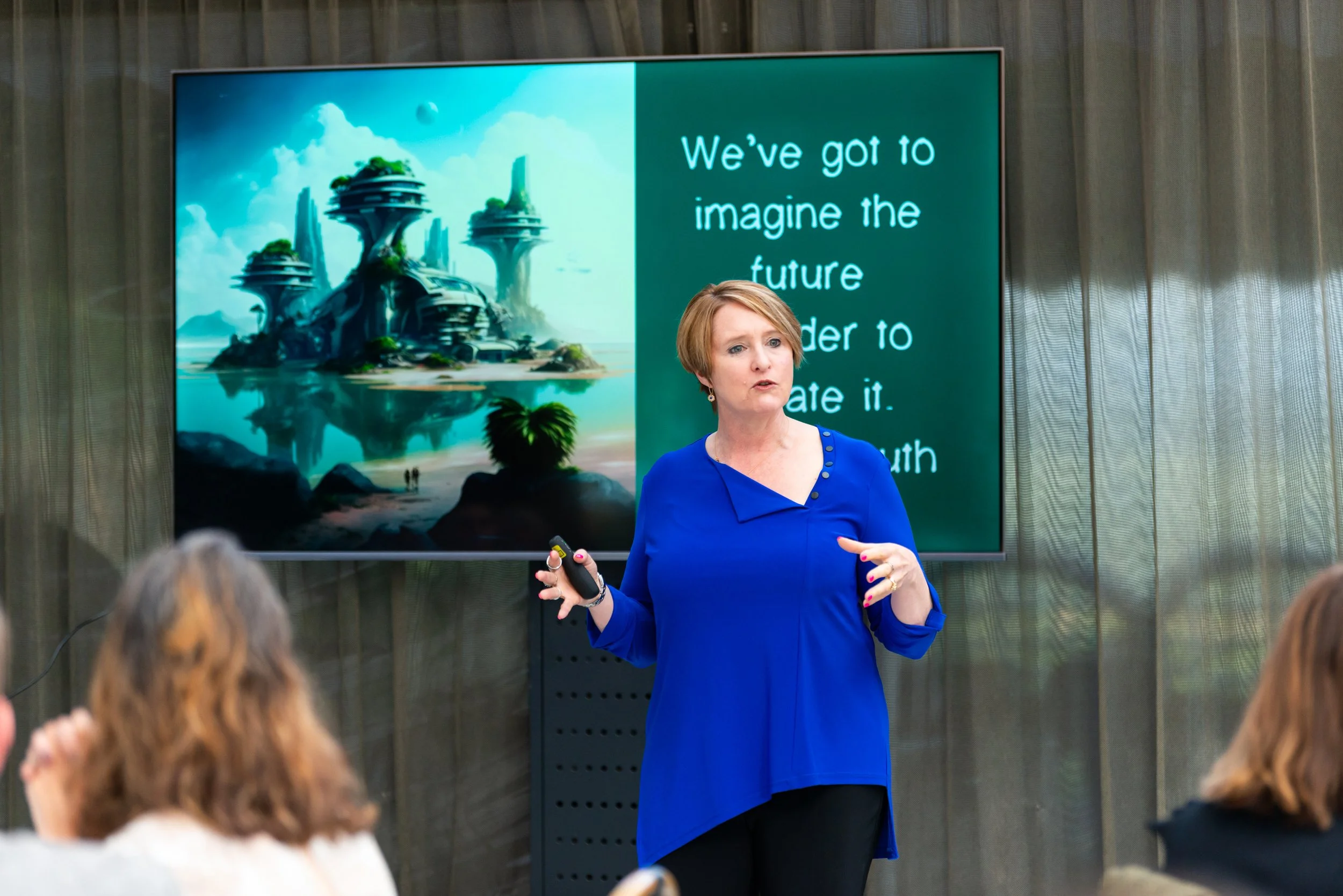I received my first bit of confronting feedback when I was the Wilderness Coordinator at Camp Stephens. It was my first leadership role as one of the managers of the camp. I loved my job fiercely, and loved my team even more. There was nothing I wouldn’t do for them.
Emotions can help and hinder leadership effectiveness
The Camp Director, Jason, my good buddy, told me at the end of summer that I was “too emotional”. What? Too emotional! How dare he! Insert defensive tirade here… *irony*
He was right, of course. In my younger days I was a fiery, passionate leader. I rode a massive emotional roller coaster, feeling everything - good and bad - with an intensity that was breathtaking. And I shared it all. I had no problems with vulnerability - I expressed my feelings fully without filters. Nothing hidden about what I was feeling or thinking!
For others, this was overwhelming. They experienced me as a hurricane.
Brené Brown in Rising Strong and her other books, flies the flag of vulnerability. She contends that most of us hide our feelings away and lock them down, until they either corrode from the inside out, or erupt volcano-style at inopportune moments. She says that opening the heart and sharing what’s inside is the key to connection and building strength in self and others.
While I too advocate the importance of sharing feelings, when vulnerability is expressed as transparency, this can can be broadcast as “too much information.” Untempered emotions are like ripping off scabs that bleed all over others. Most people are not equipped to handle their own emotional turbulence, let alone that of others. Some emotional divulgences can even trigger flashbacks and unease in those around us. It is one of the reasons we feel uncomfortable around people who have melt downs and crying episodes - we simply don’t know how to handle it.
As a society, we have not yet included deep emotional competence as a critical social skill to be taught and nurtured. Most of us are not taught how to feel our feelings fully, in a useful constructive way. We are told to bury them, to pull our socks up and soldier on. This is a contributing factor to the high rates of suicide among rural farmers and soldiers. Both professions have high expectations of their men to be tough and stoic. The Australian reports that 41 military personnel and veterans have taken their own lives this year alone.
Being stony-faced and cold is not an answer. Nor is over-sharing. Leaders by virtue of authority carry more sway in their attitude and actions. If a leader disintegrates emotionally, the distress can spread like wildfire.
The alternative to steely reserve and its counterpoint of messy emotions, is to be REAL rather than RAW.
Being RAW is about being an open book, completely transparent, in all of our jiggling messiness. It’s compelling, kind of like watching open heart surgery. Fascinating and revolting at the same time.
Being REAL is the ability to experience one’s emotions fully, to have emotions, and not BE them. It’s about being open, but not so much that we ooze and gush over others. Being REAL is more like an X-Ray than surgery. You can see everything that is going on without getting dirty.
Emotional management for leadership performance
Learning to experience and express feelings without being carried away by them is a missing critical leadership skill - the skill of being REAL.
Learning to be REAL takes practice:
Become aware of emotions as expressions of energy in the body.
Observe those emotions from a witnessing perspective. Get curious about them without getting absorbed by them.
Use language to de-identify emotions: ‘I am experiencing frustration’ versus ‘I am frustrated’.
Accept yourself unconditionally.
Strive to be better.
What are your thoughts on vulnerability? What are experiences you’ve had with people being raw? With people being real?
***
Related Articles:
How Do We Respond to Unspeakable Violence?
***
About the author, Canberra leadership expert Zoë Routh:
Zoë Routh is one of Australia’s leading experts on people stuff - the stuff that gets in our way of producing results, and the stuff that lights us up. She works with the growers, makers, builders to make people stuff fun and practical.
Zoë is the author of four books: Composure - How centered leaders make the biggest impact, Moments - Leadership when it matters most, Loyalty - Stop unwanted staff turnover, boost engagement, and build lifelong advocates, and People Stuff - Beyond Personalities: An advanced handbook for leadership. People Stuff was awarded Book of the Year 2020 by the Smart WFM Australian Business Book Awards.
Zoë is also the producer of The Zoë Routh Leadership Podcast.


